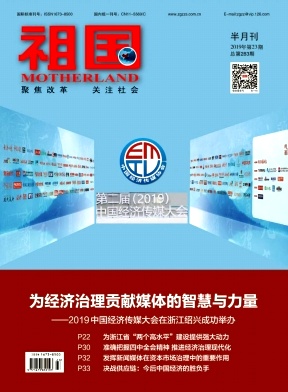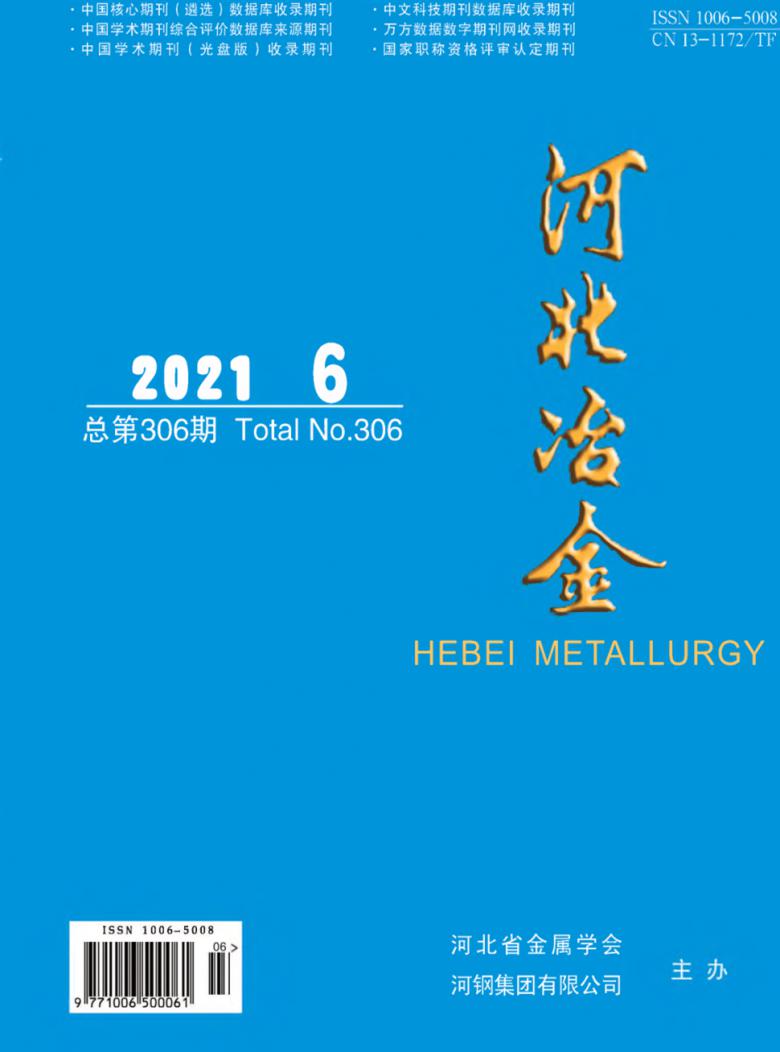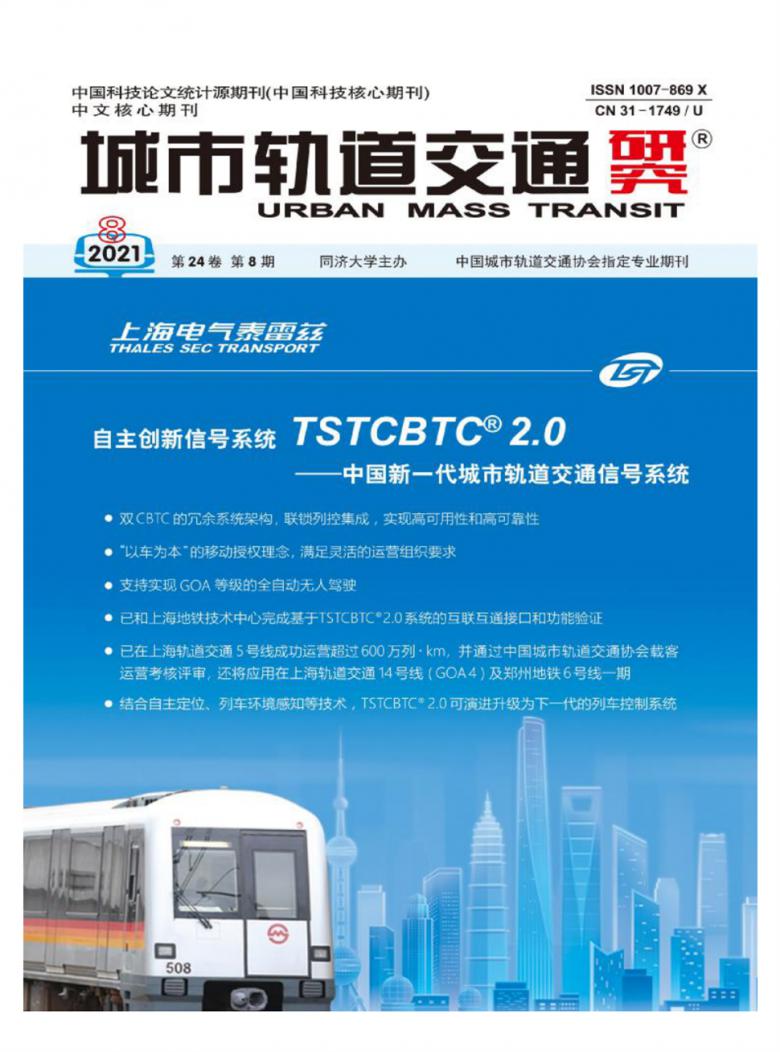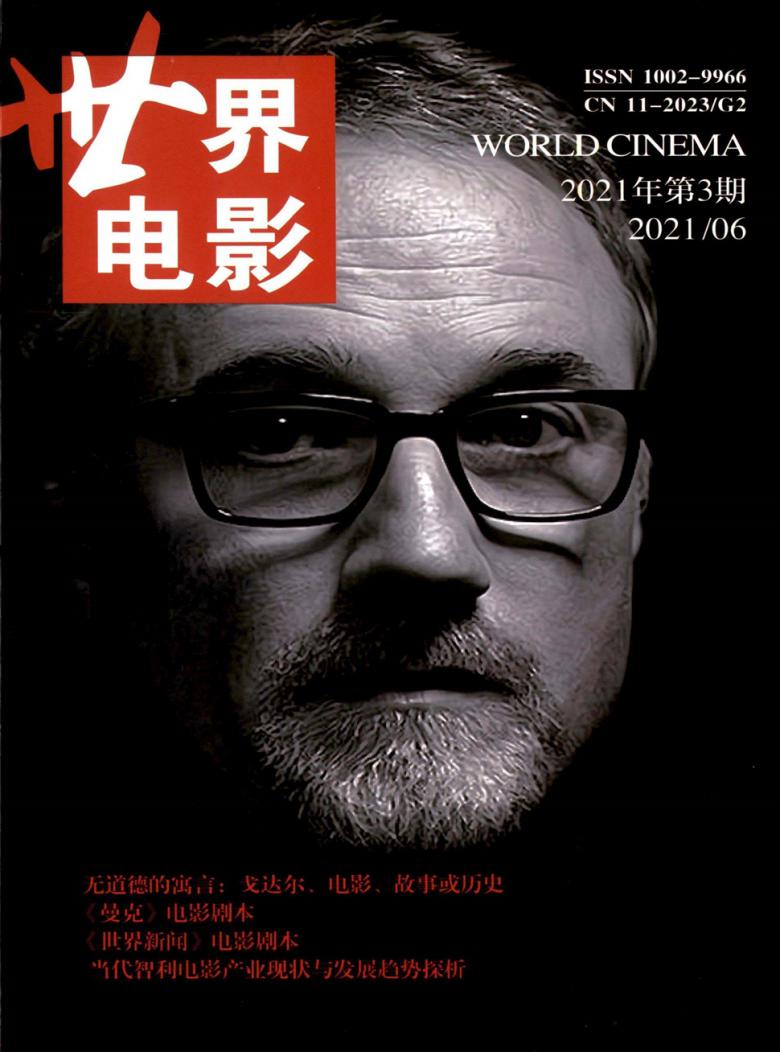中学英语写作中的元认知策略
郑雪花
【Abstract】 The cultivation of English writing skills is nowadays the main task for English teaching and learning. It is also an important quality standard of English language teaching. But in present English teaching, there are various problems. Viewing to this point, the study of learning strategy was brought into the English teaching field. Among these strategies, meta-cognitive strategies are the more advanced strategies so that meta-cognition and meta-cognitive strategies are the popular points of educational psychology and practical linguistic research nowadays. However, researches on cognitive strategies are more than meta-cognitive strategies; more meta-cognitive strategy researches have been focused on reading and listening comprehension but fewer focused on writing instruction. Documentary studies, statistic analyses as well as my own teaching experience are adopted into the study. The study results in indicating major problems in middle school English writing, the connection between meta-cognitive strategies and middle school English writing and application of the meta-cognitive strategies in middle school English writing. It is hoped that the present study will improve students’ whole English level, especially writing ability. 【Key Words】 English writing; teaching; meta-cognition; strategy; application
【摘 要】 培养学生写作水平是目前英语教学的重要环节,也是评价英语教学水平的重要质量指标。而事实是现行的英语教学存在诸多问题。鉴于此,学习策略被引入英语教学领域。在所有的学习策略中,元认知策略是较高层次的策略,故而,元认知及元认知策略成为教育心理学和应用语言学的热点。但是,现有英语研究中认知策略研究多于元认知策略研究,元认知策略应用于阅读,听力的研究也远远多于英语写作教学的研究。 通过文献资料对比,统计分析法,文献法等方法以及来自自己两年暑假在英语培训机构教学的经验,从而分析目前中学英语写作教学存在的问题及原因,元认知策略与中学英语写作的关系,在写作过程中运用元认知策略有利于学生英语写作水平的提高,也有利于学生的英语学习。 【关键词】 英语写作;教学;元认知;策略;运用
1. Introduction In the 21st century, English education has become more and more important in the class of China, especially after China entered the World Trade Organization. In other words, China will play a more and more important role in the international area politically and economically in the threaten of the globalization. Undoubtedly, it’s a challenge for our middle school English teaching. Modern society requires more advanced English talents who are comprehensively good at English listening, speaking, reading and writing. As the fundamental stage of English teaching, the middle school English teaching is becoming more and more important. Writing is one of four basic sections of English. However, English writing has not received enough attention for a long time in middle schools. This made lots of students have great disadvantages, which are the barriers of becoming excellent English learners in their future. In order to develop students’ English writing ability, different people choose different various methods, such as special English writing training courses, English tutors, reciting classical compositions and so on. In fact, these methods do not solve problems essentially. “Writing is an activity of which thoughts are expressed in a language. It is a language form of the process of one’s thinking and knowing rather than simply printing or recording those of being seen, read and felt in letters down on paper”.[1]P15. It’s the remaking of the world opinion. In order to improve middle schools’ English teaching level, the learning strategy has aroused many scholars’ attention in recent years. Since meta-cognitive learning strategies were introduced into the teaching field, the status of students and teachers has changed. Furthermore, scholars pay more attention to the research of learning methods in English writing rather than teaching methods in English writing. “However, in China, researchers on language learning strategies are not adequate, especially who research on high schools’ use of writing strategies are rather rare” [2]P12. Viewing a look of this point, the exploitation of meta-cognitive strategies should fix our eyes tightly. It is significant for middle school students to develop their English writing abilities. On the one hand, in the view of English writing itself, it has several functions. First, during the writing process, it reinforces the grammatical instruction, idioms and vocabulary. Second, writing practices encourage them to take risks in using English. In other words, during the process, they meet with the new English expressions. Third, when they use English to express their own ideas, it also develops other skills of English learning. On the other hand, it is the preparation for receiving further education in a college or a university and achieving greater success in their coming careers’ life. It is also because in their future life, face-to-face speech in English with foreigners seldom happens in most cases. With the hope of arousing many teachers’ attention and improving the middle school English writing teaching and learning, this thesis indicates major problems in middle school English writing; the connection between meta-cognitive strategies and middle school English writing and the application of meta-cognitive strategies in middle school English writing from the angle of learning strategy on the basis of the many previous researches.
2. Major Problems in Middle School English Writing As one of the four basic English skills, undoubtedly, writing is important. The writing ability can indirectly present the whole level of English learning. However, one of the most obvious phenomena is that many middle schools’ students fail to write correct simple sentence to express their ideas, which are understood clearly. For a long time, the problems of improving the quality of English writing teaching have troubled many English teachers in middle schools. The existing problems of English writing teaching in middle school are still obvious and serious. For one thing, although students have learnt English writing for several years, many of them do not use English in writing well and freely. For another thing, it is also hard for teachers in middle schools to find out mistakes in students’ compositions. It is not only objective problems but also subjective problems. These problems became the obstacles of improving middle school English teaching and developing students’ writing ability. 2.1 Problems of the process of middle schools’ English writing teaching There is a big shortage in middle schools’ English writing teaching. Without activating students’ motivations, the present normal writing teaching is just simply pass knowledge to students through the teachers’ single side. Students are rather passive in learning English writing. For instance, although students can pass many examinations, they do not write correct simple sentences, which are understood clearly. 2.1.1 Problems of the process of teaching Many teachers are excessively aiming at helping students to pass examinations. Seldom of them teach students writing skills and tactics. Students are just simple receivers to hear the given knowledge inflexibly and react mechanically in English writing. For example, in the case of middle school writing teaching, most teaching activities are the traditional types, such as copying the text, doing translation and filling in the blanks. They pay little attention to other features, such as layout, organization, clarity, coherence and cohesion. This old teaching method could not teach students to think over, monitor and evaluate their own writing activities at all. It mainly resulted from the traditional exam-oriented education and results-oriented teaching methods, which make teachers, pay most of their attention to the final exam products, neglecting the writing process. In my opinion, in middle school in our country, the writing course should be a separate and special course. Only in this way can English writing learning in middle school arouse our enough attention. 2.1.2 Problems of teachers’ teaching level and students’ attitude There is an obvious contradiction between teachers’ real teaching levels and that of factual teaching demands. It also mainly resulted from the traditional exam-oriented education. For one thing, many college students who are majoring in English teaching have not received a series of systemically teaching courses when they are in the college. For another, the traditional exam-oriented education makes them teach their students mechanically, without enough innovations in their process of teaching. As a matter of fact, writing is a creative task that needs skills and tactics. Students do their writing tasks passively but rather than positively and actively. They write blindly because of lacking of self-awareness. Middle school students generally have a low level of motivation and little interest for writing. Because writing seems difficult and threatening, for most of them, the only motivation for composition is to pass exams or to fulfill the tasks assigned by their teachers. The most serious problem with middle school students is that most of them fail to have a good command of English writing. 2.2 Imbalance of previous researches The previous researches that aim to solve those problems are unbalanced. Because of so many existing problems in English teaching and learning, various researches have appeared that were brought into English teaching with the purpose of solving the existing problems and improving students’ writing ability. Learning strategy was also involved in this research wave. ‘Learning strategies’, the special things or behaviors that inpiduals use to help them comprehend, learn, or retain new information”[3]P1. In recent years, scholars from home and abroad have introduced much research to this field. It’s proved that both cognitive strategies and meta-cognitive strategies benefit learners. But as English teaching involved, one problem is that researches on them are unbalanced, for more researches have been down on cognitive strategies than on meta-cognitive strategies. The other problem is that meta-cognitive strategies which research on listening, speaking, reading and writing are unbalanced, for few researches prefer to study writing strategies.
3. The Connection between Meta-cognitive Strategies and Middle School English Writing 3.1 Meta-cognition Researchers have been studying meta-cognition for over twenty years. It is most broadly defined as awareness and control of one’s learning. Hu Zhuxue said that in the 1970s, the famous psychologist Favell holds that the prefix “meta” literally means “beyond”. Meta-cognition therefore means “beyond” cognition ”. Liu li said that it was the process of using cognitive processes to improve thinking skills. And it was called meta-cognition because its core meaning was “cognition about cognition”. Researches have proved that there are great connections between learners' meta-cognitive knowledge and their choice of language strategies. Meta-cognitive knowledge and meta-cognitive strategies are two indispensable factors in both learning and acquisition. It’s improper to neglect meta-cognitive knowledge. Meta-cognitive knowledge can be the initial step, on the basis of which learners develop their meta-cognitive and other strategies. Meta-cognitive knowledge and meta-cognitive strategies also interact with each other. Without meta-cognitive knowledge, middle school students often feel hard to use appropriate strategies when dealing with a title, which will at last lead to fossilization in the strategy application. Middle school students firstly acquire meta-cognitive strategies by imitating. They use some meta-cognitive strategies unconsciously in writing, but can’t tell the reasons behind them. This is obviously not enough. In this case the involvement of meta-cognitive knowledge, learners reconsider and reconstruct meta-cognitive strategies and the other strategies, knowing not only “how” but also “why” and “when” to use those strategies in middle schools students’ English writing. Therefore, when facing writing, students can transfer proper strategies in different phrases of writing. 3.2 Language learning strategies It has been said that strategies applied in writing are one kind of learning strategies. So it is necessary to take a close look of learning strategies first. “Learning strategies may have an affective or conceptual basis, and may influence the learning of simple tasks, such as learning vocabulary or items in a list, or complex tasks, such as language comprehension or language production”.[4]P43 Learning strategies are complex procedures that inpiduals apply to tasks, consequently, they maybe represented as procedural knowledge, which may be acquired through cognitive, associated and autonomous stages of learning. 3.3 Meta-cognitive strategies in the process of writing 3.3.1 Defining meta-cognitive strategies It’s not easy to define meta-cognitive strategy. Many researchers have defined these term “language-learning strategies”. Zhou juan said that Cohen describes meta-cognitive strategies as dealing with pre-assessment and pre-planning, on-line planning and evaluation, and post-evaluation of language learning activities and of language use events. Such strategies allow learners to control their own cognition by coordinating the planning, organizing and evaluating of the learning. She also said that O’ Malley, Chamot posit that meta-cognitive strategies involve thinking about learning process, planning for learning, monitoring of comprehension of production while it’s taking place, and self-evaluation of learning after the language activity is completed. In a word, a meta-cognitive strategy is like a tactic used by a commander. 3.3.2 Meta-cognitive strategies consist of three basic elements During the execution of a task, it’s responsible to use meta-cognitive strategies. “Such strategies include an awareness of what one is doing and the strategies one is employing, as well as knowledge about the actual process of learning. They also include an ability to manage and regulate consciously the use of appropriate learning strategies for different situations. They involve an awareness of one’s own mental processes and an ability to reflect on how one learns, in other words, knowing about one knows. This different level is called meta-cognition, a term first introduced by John Flavell. (1970, 1976, 1981)” [5]P148. The whole composition shows students’ meta-cognitive level comprehensively. A context is a semantic body organized logically in some interrelated sentences and paragraphs by certain jointing means. It requires students to consider all writing elements entirely. The most important step should be the macro-arrangement. The unity, coherence and transition are important for a whole context. (ⅰ) Planning strategy: Planning strategy involves the selection of appropriate strategies and allocation of resources that affect performance. Doing learning plan is a key step of learning process. No matter the aim is finishing class-work or dealing with exams, students should form a “general strategy” in every course. Successful students not just listen to the teacher, take notes and wait for the assignments, but also estimate the time that they would lest need to finish their work and gain all kinds of messages before finishing their work. They can do any preparation positively in advance but not wait for teachers’ requirements negatively. Planning strategy helps students to make writing plan and specific aims, make sure the theme of the whole composition and make an outline. Then monitoring strategy reminds students to express their minds orderly, arrange sentences and paragraphs naturally and coherently We apply planning strategies to the process of writing, in other words, we develop a plan of this article. Students should ask themselves the following questions: What in my prior knowledge will help me with the title in the lesson? In what direction do I want my thinking to take me? What should I do first? How much time do I have to complete the task? (ⅱ) Monitoring strategy in the process of writing It is important and necessary to review attention to an ongoing task, monitoring comprehension for information that should be remembered, and monitoring production while it’s occurring. For instance, when students are writing, they could find what your attention is. Another example, students could design some questions by themselves for an article before students answer those given questions. This is self-questioning. The third example, when students are taking part in an exam, students could monitor the speed and the time of the writing. These strategies make students care of the possible problems about their own attentions and comprehension. Monitoring strategy run through all writing process. “White and Arntd say that focusing on language errors’ improves neither grammatical accuracy nor writing fluency’ and they suggest instead that paying attention to what the students say will show an improvement in writing.” [6]P33 We apply monitoring strategies in the process of writing, in other words, we control the process of writing. Students should ask themselves the following question: How should I going on my writing? Do I insist on the right direction of the theme? What information is important to use in the writhing? Should I have to adjust the direction of the whole article when facing difficulties? (ⅲ) Evaluating strategy in the process of writing Reviewing comprehension after completion of a receptive language task, or evaluating language production after it has taken, the cycle is repeated. It refers to appraising the products and efficiency of one’s learning. Typical examples include diagnosing one’s problems and re-evaluating one’s goals. Evaluating learning actions that happened already help to adjust the whole learning process. Once the problems were found, the learning actors would change the learning methods and adjust their own learning attitudes. After finishing the first draft, it does not mean the completion of the whole writing task. Evaluating strategy should be used to check all the parts of a composition as the same procedure of the first draft writing. It is a principal and necessary step required by evaluating strategy. Firstly, thinking over the theme, making an outline and doing writing plan. Secondly, checking paragraphs on the basis of a true structure. Finally, reviewing other small mistakes is also necessary. We apply evaluating strategies in the process of writing; in other words, we evaluate the article, which we write. Students should ask themselves the following questions: How well did I do? Did my particular thinking of my article produce more or less than I had expected? What could I have done differently? How might I apply this line of thinking to other composition? Do I need to go back to correct mistakes in my writing? On the one hand, all these three categories of meta-cognitive strategies (planning strategy, monitoring strategy, evaluating strategy) are independent, whereas on the other hand, they also interact with each other. That is to say, they can either be used independently at one or some stages during writing, or to some degree be used simultaneously in one or even some stages.
4. Application of the Meta-cognitive Strategies in Middle School English Writing The final purpose of any kind of theory is to apply it in practice. So the meaning of this thesis is to improve the ability of writing of middle school students. With a view to considering the previous practical situations, the previous scholars state meta-cognitive strategies and their applications to English writing in middle schools in order to solve existing problems efficiently and receive practical value. It’s believed that meta-cognitive strategies could help students to improve their English writing effectively. When we improve the ability of writing, we also reinforce other language skills nearly at the same time. It’s necessary and important to apply meta-cognitive training into strategies-based teaching. Writing is a kind of complicated cognitive activity. Scholars from abroad have been studied all directions of problems about writing. On the one hand, Meta-cognitive strategies cannot be only used separately at each stage of writing, but also used two or three together in one stage or the whole process. On the other hand, one strategy can be used in several sections of writing. Meanwhile, one section of writing can use several strategies comprehensively. 4.1 Teachers play an important role in the instruction of meta-cognitive strategies 4.1.1 Teachers’ feedback to the students’ composition “When we are teaching advanced composition, it is sometimes difficult to decide what kind of teacher intervention can be most productive” [7]P167. Writing is a creative action, which requires time and positive feedback to be done well. “In process writing, the teacher moves away from being someone who sets students a writing topic and receives the finished product for correction without any intervention in the writing process itself”[8]P32-33. Feedback is more useful between drafts, not when it is done at the end of the task after the students hand in their composition to be marked. Teachers’ corrections have much affect in improving student writing ability. In other words, teachers doing correction on the students’ compositions can help students make fewer mistakes next time. This kind of reaction also helps student to develop their ability of using evaluating strategies. 4.1.2 The important role of teachers in the process of students using meta-cognitive strategies “Research has pointed out the powerful role of meta-cognition in learning (Duell, 1986), the potential of meta-cognitive strategies for enhancing success in language learning (Wenden, 1987)” [9]P25. Meta-cognitive awareness is a necessary step in learning to writing. The final purpose is to use appropriate meta-cognitive strategies unconsciously “Effective learners need to be able to employ strategies unconsciously, and then to be able to call their meta-cognitive awareness into play as and when necessary when faced with a difficulty”[10] P25. Teachers have the responsibility to teach well. Teachers should realize their duty on helping students to use meta-cognitive strategies. Teachers order students to make an essay plan. This activity can help students make decisions. Teachers teach student to use monitoring strategies, such as giving them some useful advices. Students also need to evaluate the results of the decisions made during the course of planning writing. Teachers can encourage self-evaluation and reflection by asking students to evaluate the effectiveness of strategies used in their writings. 4.2 Imaginative writing in response to texts “Writing imaginative responses to texts develop students’ knowledge and understanding of a text and extend their use of language and their range as writers”[11] P30. Imaginative and creative writing of any kind is essential to develop students’ other skills of the language. In this kind of cycle, students writing ability will become better and better. “Imaginative responses to texts involve adopting different points of view, drawing on the ideas in the text, and using different forms of language”[12] P30. The following is the concrete operation about this part: In order to give concrete operations of this part theory, we will take some paragraphs form students’ book as typical examples. ⑴Changing one word to another word, Changing one word to a phrase or some words, changing a phrase to a word and doing some changing to rebuild the whole sentences. When doing these changes, students have to remember not to change the original meaning of the text. The paragraph I take as a typical example: “When I went back to the man again, I wanted more crack cocaine. But he asked me for a lot of money. I didn’t have enough money so he didn’t give me any drugs. I was in terrible pains.”(Taken form N.S.E. Senior BookⅡP13) ①Changing one word to another word For example, the second sentence of the above paragraph: But he asked me for a lot of money. -> However, he asked me for a lot of money. (The italics are the different places after changing.) ②Changing one word to a phrase or some words For example, the first sentence of the above paragraph: When I went back to the man again, I wanted more crack cocaine. -> When I went back to the man again, I ask him for more crack cocaine. (The italics are the different places after changing.) ③Changing a phrase to a word For example, the second sentence of the above paragraph: But he asked me for a lot of money. -> But he asked me for much money. (The italics places are the different places after changing.) ④Doing some changing to rebuild the whole sentences For example, the first sentence of the above paragraph: When I went back to the man again, I wanted more crack cocaine. -> I went back to the man and wanted more crack cocaine. (The italics are the different places after changing.) ⑵Adding one adverb or a phrase can make whole paragraph more coherent. The following is taken as a typical example: “When I went back to the man again, I wanted more crack cocaine. But he asked me for a lot of money. I didn’t have enough money so he didn’t give me any drugs. I was in terrible pains.”(.Taken form N.S.E. Senior BookⅡP13) For example, the fourth sentence of the above paragraph: I was in terrible pains. -> Therefore, I was in terrible pains -> As a result, I was in terrible pain ⑶Writing a continuing paragraph of the text The following is taken as a typical example: “My name is Li Kang. I live in Shijiazhuang, a city not far from Beijing. It is the capital city of Hebei province. Today is my first day at senior High School and I am writing down my thought about it.” (Taken form N.S.E. Senior BookⅡP13) For example, the following part of the above paragraph, which concludes something about descriptions of the school: my new school is very good and I can see why. The teachers are very enthusiastic and friendly and the classrooms are amazing…………. ⑷Rewrite the article For example, rebuilding the every sentence which has been changed, and linking paragraphs properly by using meta-cognitive strategies. 4.3 The process of Meta-cognitive strategies applied in compositions 4.3.1 Meta-cognitive strategies applied in wording Meta-cognitive strategies are shown in the process of wording, including preparation, selection and decision of words. During the stage of conceiving a composition, students have lots of preparations to do. Students need to learn ways to spell accurately so that they can be confident users of a wide vocabulary. Through early classroom experience of writing and reading, students learn about spelling. Accurate spelling develops as students increase their understanding of how letters of the alphabet represent sounds. Vocabulary development and spelling become closely related and should be closely related and linked in classroom work on units, activities, and projects. Developing accurate spelling requires a wide range of resources for understanding the meanings of words and how to spell them. Before saying the application of meta-cognitive strategies applied in wording, I would like to emphasis one point: Teachers play an active role in developing students’ spelling. Because teachers’ effective conductions will do students’ using meta-cognitive strategies in wording better. ⑴Direct word-listing activities when they are reading passages aloud from novels or other texts. For example, when reading one word blue, teachers can direct students to say some connective words, such as yellow, red, sky and so on. ⑵Underline misspellings in drafts of students’ work and provide time for students to investigate accurate spellings. ⑶Conduct students to focus attention on the spelling of particular words when reading texts in class. For example, students can read after teacher several times of texts. ⑷Conduct students to focus attention on word choice and spelling using cloze passages from familiar texts. ⑸Provide lists of key words and phrases as part of helping students to plan piece of writing. For example, when facing to write the title from a good habit, the teacher can give students some famous saying first, such as “better the head of an ass than the tail of a horse”, “better later than never”, “the early bird catches the worm”and so on. Vocabulary development and spelling are mainly related to planning strategy. Planning strategy can help students to collect a great deal of information as well as broaden their sight so that students’ vocabulary could be larger. Jia Guangjie said that vocabulary is the base of writing, and without large vocabulary, it is impossible for us to do well in our writing. And Ding Wangdao said that the choosing of appropriate words is important too. Monitoring strategy keeps all the known words waiting for choosing. Large vocabulary promises enough words to be selected when students need during writing. Many students always give up their profound thoughts because of not finding out words to express. Students who have high expressing abilities can use simple words selected from their vocabulary to survey minds freely. Monitoring strategy helps students to finish this process. Except the previous steps, it’s important to select the most proper word. Only right words can express thoughts right. Evaluating strategy requires students to see the meaning of words and the classification of words. Evaluating strategy also helps to correct words mistake. The following I will give a typical example of the application of meta-cognitive strategies in wording. For example, students receive the topic: My New Teachers. (Taken form N.S.E. Senior BookⅠP12): Planning strategy has helped student have a certain number of vocabulary: teachers, students, god, good, impression, late, sleeping, I, him, yours, sleeping, shy, lesson, eating, thoughts, strict, studying, thank, admit, of, being, amusing, hare, person, she, he, etc. Monitoring strategy can help them choose some of them related to the theme which they chose. Such as: teachers, students, good, impression, I, shy, lesson, strict, he, etc. Evaluating strategy require students to see the meaning and the classification of the selected words. Such as the meaning of the strict and it is an adjective. So students can place it in an appropriate place in one sentence. And this strategy also helps students to find out the spelling mistakes of words that they have wrote down. 4.3.2 Meta-cognitive strategies applied in sentences The selection of sentence patterns depends on the meta-cognitive level of a writer. A sentence is the basic unit. To our Chinese students, the most terrible and serious thing is to make sentences that are full of Chinglish but not real Standard English. There are lots of differences between English and Chinese. It’s worthy pointing out that all these three strategies remind students to avoid Chinglish. Planning strategy benefits students to form the topic sentences. Monitoring strategy controls the process of forming sentences, including right grammar, various sentence structures, collocation and usual expression. For instance, students can have the cognition to use actively simple sentences or complex sentences, single or compound sentences, subordinate or coordinate sentences. They also can pay attention to whether the sentence voices and tenses match with each other. If students took no notice to these factors, others may not understand by others. Evaluating strategy requires students to correct all kinds of mistakes. In a word, sentence expression must be accurate, exact and precise. The following is the concrete operation about this part: students receive a topic: The Internet and Telecommunication. (Taken form N.S.E. Senior BookⅠP2)Planning strategy benefits students to form the topic sentence: It’s accessible through a computer; the Internet is the big source of information in the world. (In the sentence, there are many mistakes. Then in the following, students will use monitory and evaluating strategies to correct some of them.) Monitory strategy controls the process of forming the above-formed sentence: It’s accessible through a computer; the Internet is the big source. -> The Internet is the big Source of information in the world and it’s accessible through a computer. (In this operation, students make the sentence more coherent. But there are still some mistakes, especially in grammar. Then in the following, students will use evaluating strategies to correct all the mistakes in it.) Evaluating strategy corrects all kinds of mistakes in the above-formed sentences: The Internet is the big Source of information in the world and it’s accessible through a Computer. -> The Internet is the biggest Source of information in the world and it’s accessible through a computer. (In this operation, according to the correct grammar, students change big into biggest.) 4.3.3 Meta-cognitive strategies applied in paragraphs Making paragraphs is harder than making sentences because it requires higher meta-cognitive knowledge and strategies. Generally speaking, a paragraph is composed of three elements: the topic sentence, the supporting sentences and the concluding sentence. Many students don’t know how to begin a paragraph and how to finish a paragraph reasonably because they don’t know the structure and features of paragraphs. Planning strategy helps students to collect relative sentences and monitoring strategy to arrange them orderly. Topic sentence is the core of a paragraph, so whether the topic sentence is good or not decides the whole paragraph. Students should notice that a topic sentence must not be incomplete, unclear and general and supporting sentences must be relative to the main meaning with the guide of monitoring strategy. Choosing most expressive sentences is the base of a good composition. Ding Wang Dao said that making effective sentences must consider the unity, coherence, conciseness and emphasis as well as variety. Various sentence structures, such as simple and complex sentences, single and compound sentences, short and long sentences, will make the narration vivid and meaningful. The following is the concrete operation. For example, students receive a topic: My First Day at Senior High (Taken form N.S.E. Senior BookⅠP2) Planning strategy helps students to collect relative sentences: Today is my first day at senior High School. I am writing down my thought about it. It is the capital city of Hebei province. My name is Li Kang. I live in Shijiazhuang. It is a city not far from Beijing. The air in the morning is fresh. Monitoring strategy helps them to arrange them orderly. At the same time help students to find out sentences, which are not relative to the main meaning of the paragraph: My name is Li Kang. I live in Shijiazhuang. It is a city not far from Beijing. It is the capital city of Hebei province. Today is my first day at senior High School .I am writing down my thought about it. (In this operation, students arrange them orderly, deleting the unrelated sentence: The air in the morning is fresh. But the paragraph is not coherent) Evaluating strategies helps them to correct some mistake in the formed paragraph: My name is Li Kang. I live in Shijiazhuang, a city not far from Beijing. It is the capital city of Hebei province. Today is my first day at senior High School and I am writing down my thought about it. (In this operation, students do some changes to make the paragraph more coherent)
5. Conclusion The application of meta-cognitive strategies is effective to improve students’ writing. The essence of the application of meta-cognitive strategies is to help students recognize the whole writing process through their internal thinking, and find out the core of problems so as to take the most proper strategy to solve problems. The final aim of the application of meta-cognitive strategies is to improve students’ English level, including listening, speaking, and reading, writing and translating as well as to cultivate the willingness and awareness of active learning. As a tentative study, the application of meta-cognitive strategies not only improves students’ English writing, but also teaches them to analyze and solve any problems independently in their following learning, and know how to evaluate their own performance and progress objectively. Meta-cognition research is meaningful to English teaching. That the application of meta-cognitive strategies could be integrated into the teaching content as one of the essential parts which enlightens us to transfer the utility of meta-cognitive strategies to other fields of English teaching. On the basis of the present research achievement in English instruction, such as English reading comprehension, English listening comprehension and English words memoring, it is predicted that meta-cognitive strategies can be used in more areas of English teaching and learning but not only be confined in English writing.
Reference [1] 年志凤. Research on High School Students’ English Writing Strategies [J]. 辽宁大学学报,2004.P15 [2] 同[1].P12 [3] J. Michael O’Malley Ama Uhl Chamot. Learning Strategies in Second Language Acquisition[C]. 上海外语教育出版社,2003.P1 [4] 同[3] .P43 [5] Marion Williams & Robert L. Burden. Psychology for Language Teachers[C].外语教学与研究出版社.,2003,3.P148 [6] 陈淑芝.Meta cognitive strategy and Teaching of writing in Senior Middle School [J].辽宁师范大学学报。2002.P33 [7] Penny Ur. A Course in Language Teaching: Practice a theory [M]. 外语教学与研究出版社.2000, 10.P167 [8] 同[6].P32-33 [9] 同[6] .P25 [10] 同[6] .P25 [11] 同[6] .P30 [12] 同[6] .P30






